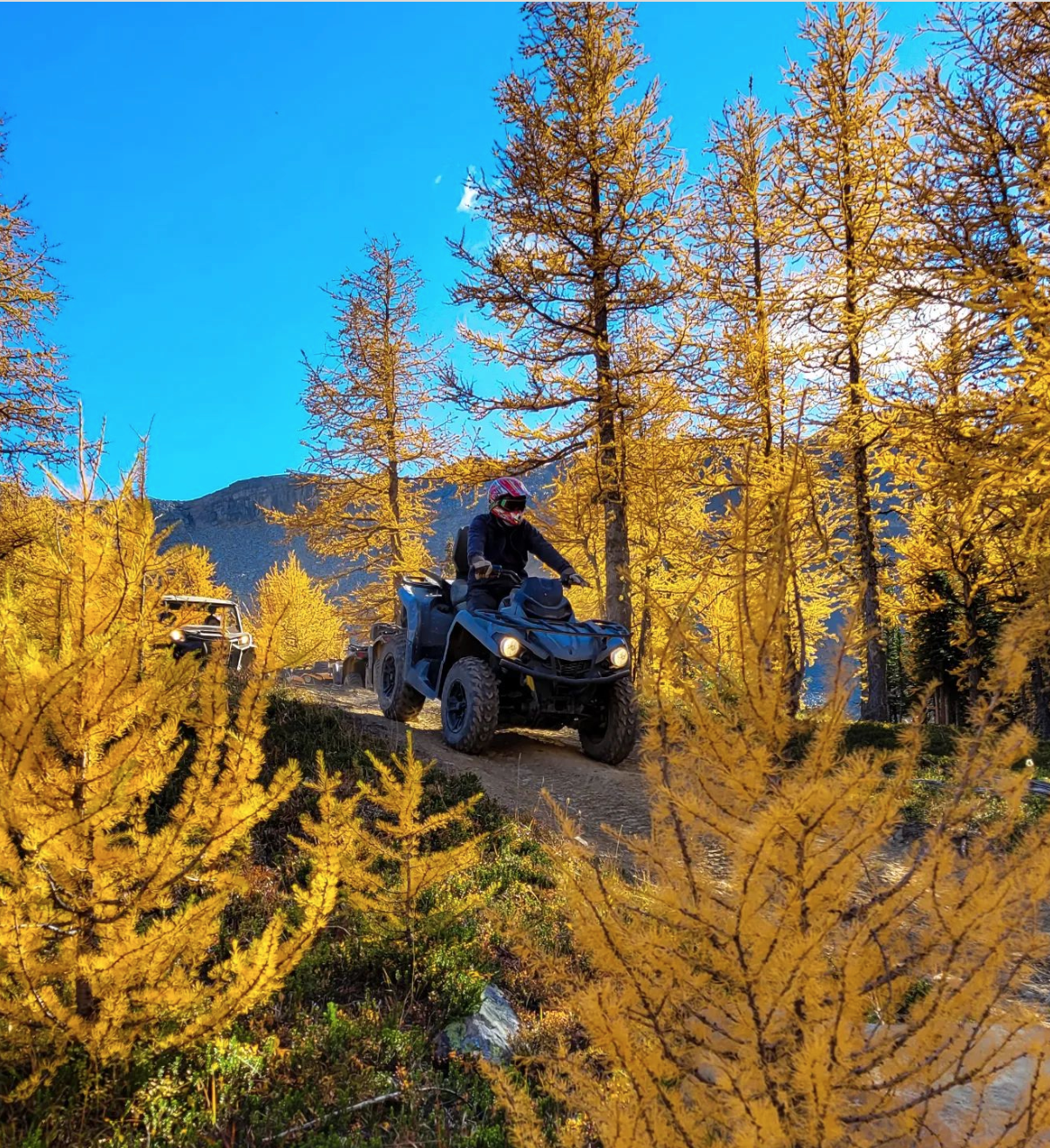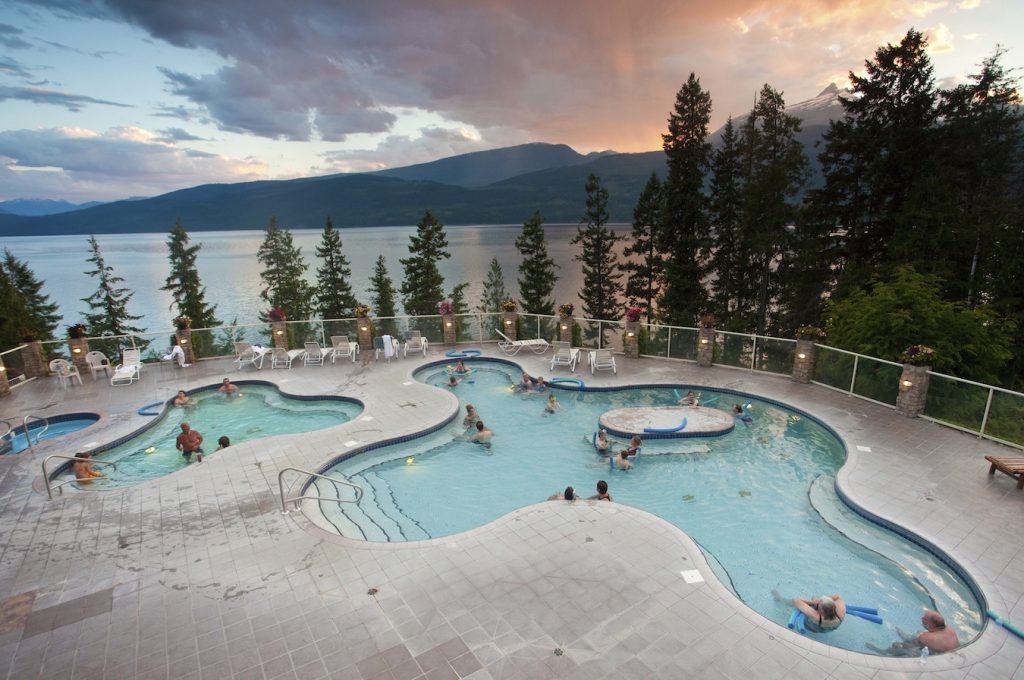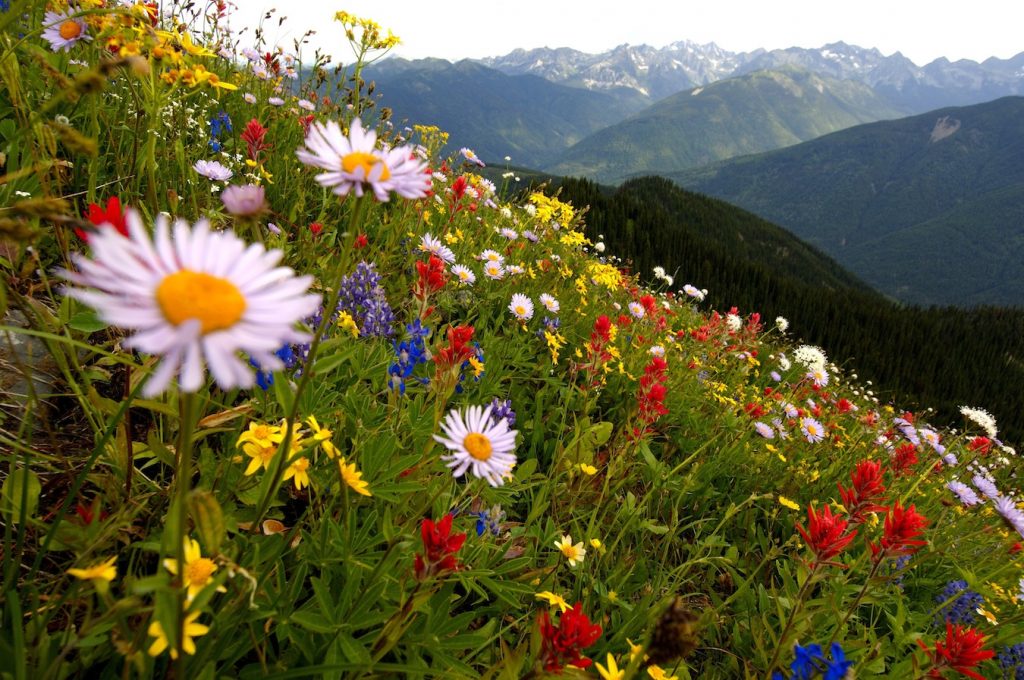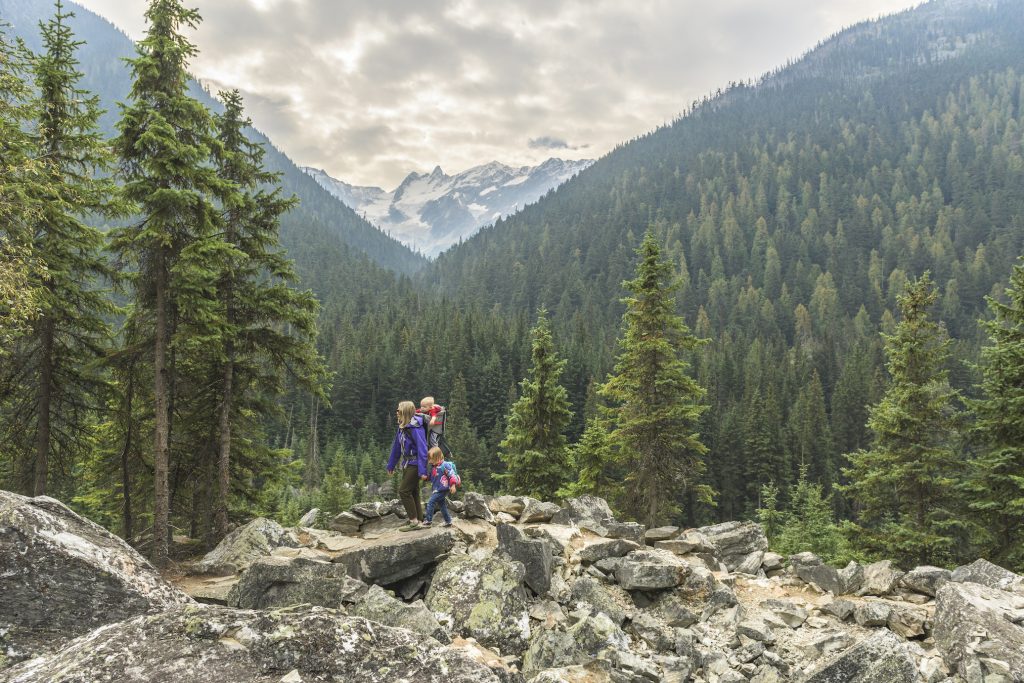Most people are familiar with the annual show put on by the maples of Eastern Canada, but the Kootenays have their own, equally stunning autumn colour riot, as the larch trees paint the mountains brilliant gold in late September/early October into mid-November.
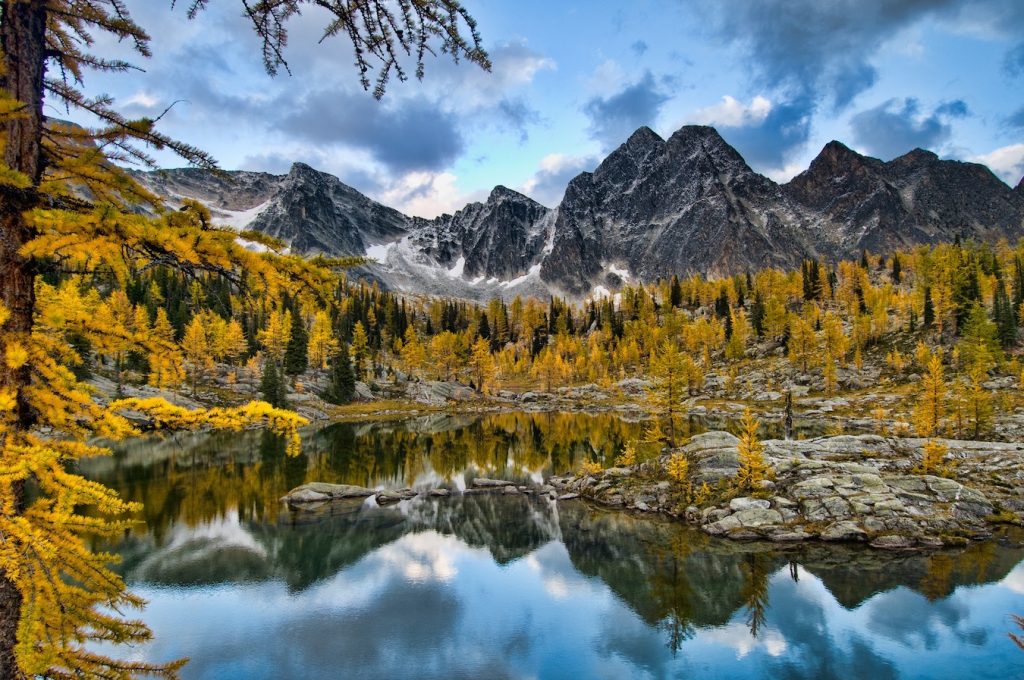
Often mistaken for their Eastern relative, Tamarack, the Kootenays boast some of the highest concentrations of both Western and Alpine Larch. All three are members of the Larix genus. A confused family of trees, Larix are both coniferous trees (trees with needles and cones) and deciduous (they recycle pigments and drop their foliage each fall), recycling their valuable green chlorophyll molecules by storing them inside the tree itself when the days shorten and the temperature drops, leaving only the yellow and golden-hued carotenoid and xanthophyll pigments in the needles to brighten up the world.
ALPINE LARCH TREES
The Larix Lyallii are the wind-gnarled and frost-sculpted cousins of the Western Larch and can be found on rocky slopes and alpine meadows at high elevation.
Areas like Brewer Creek, Kokanee Glacier Provincial Park, Jumbo Pass, Monica Meadows, Purcell Wilderness Conservancy Park/St. Mary Alpine Park, Rockwall Trail in Kootenay National Park and Welsh Lake, offer great Alpine Larch viewing, and the annual show begins to light up in mid-to-late September.
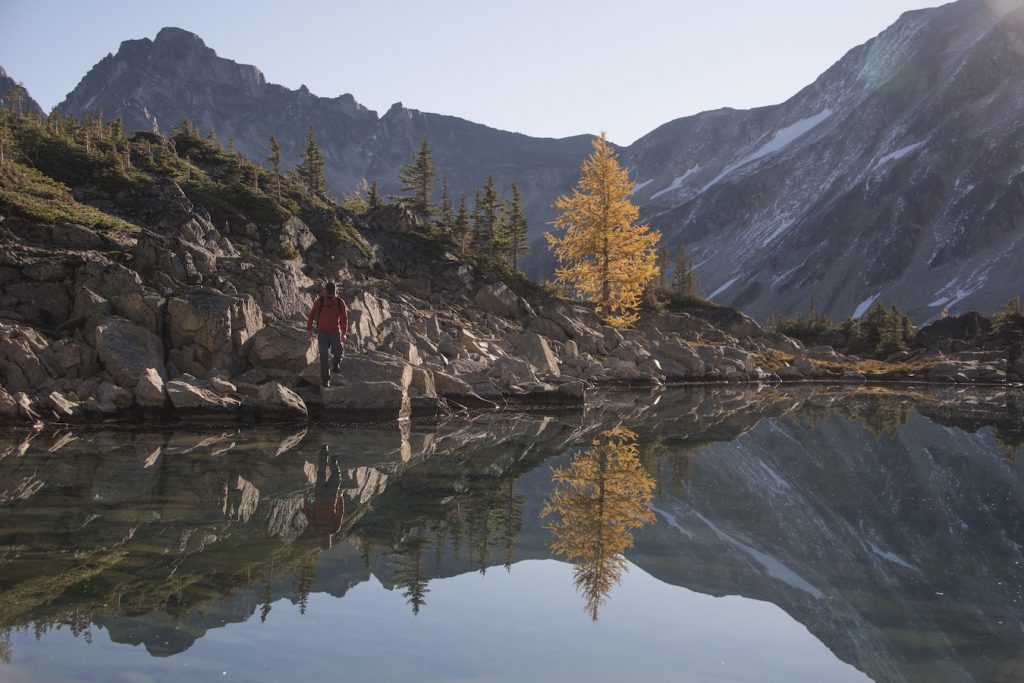
WESTERN LARCH TREES
The Larix Occidentalis is a tall, straight tree found at lower elevations, prized for both lumber and firewood. With up to 30-cm of bark, it can survive repeated forest fires, and can grow to monstrous proportions. The world record Western Larch boasts a 6.7-metre diameter, and they can reach 80 meters in height.
Few of these giants survived the early forestry boom of the Kootenays, but the next generation of larch carpets our low-elevation slopes, and these younger trees still put on an incredible autumn show.
Areas like Cranbrook, Elko (Silver Springs Lakes), Fernie, Kimberley and the Yahk Valley boast extra high densities of Western Larch. These larch tree begin to turn a little later in the season, mid-Oct to mid-November.
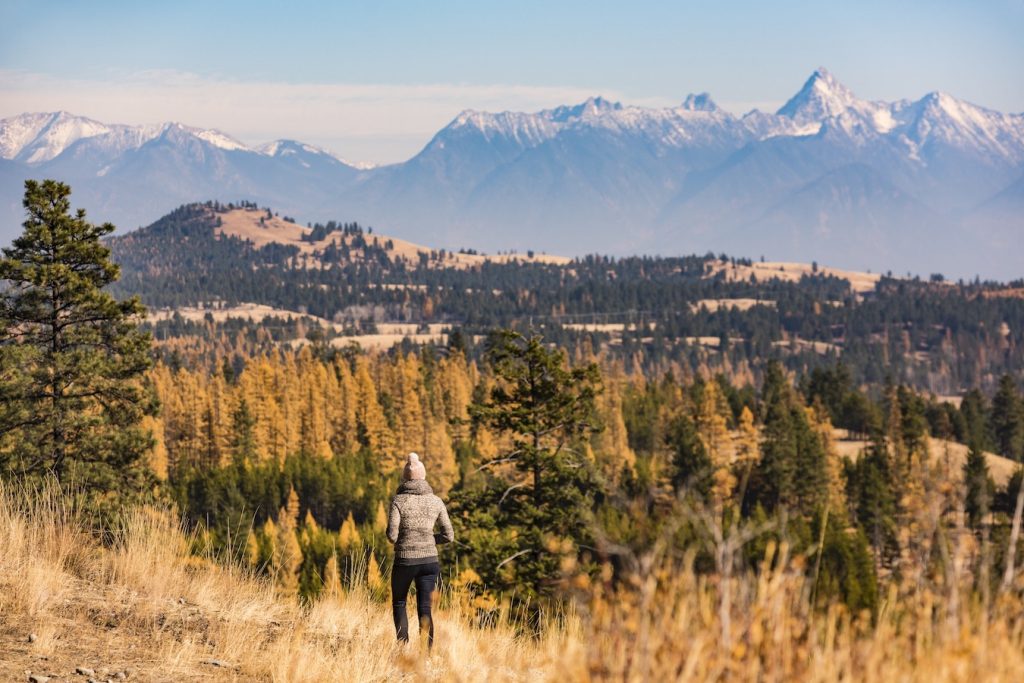
These bonsai-like golden forms against a backdrop of an early snowfall and crystal blue Kootenay skies is well worth a hike. Some ancient Grandmother alpine larches have been leaning into the mountain winds for close to 2,000 years.
GUIDED TOURS
Playwest Mountain Experience is offering guided tours in the Purcell Mountains starting in mid-September to mid-October. See the stunning alpine larch trees up close. This fall experience is suitable for all hiking levels and includes a professional guide.
The Larch Walks for 2024 will be: Sept. 27-29 & Oct 4-6. This program includes a professionally certified ACMG Guide, a fresh packed lunch, transportation to & from the trailhead and a heck of a good time!
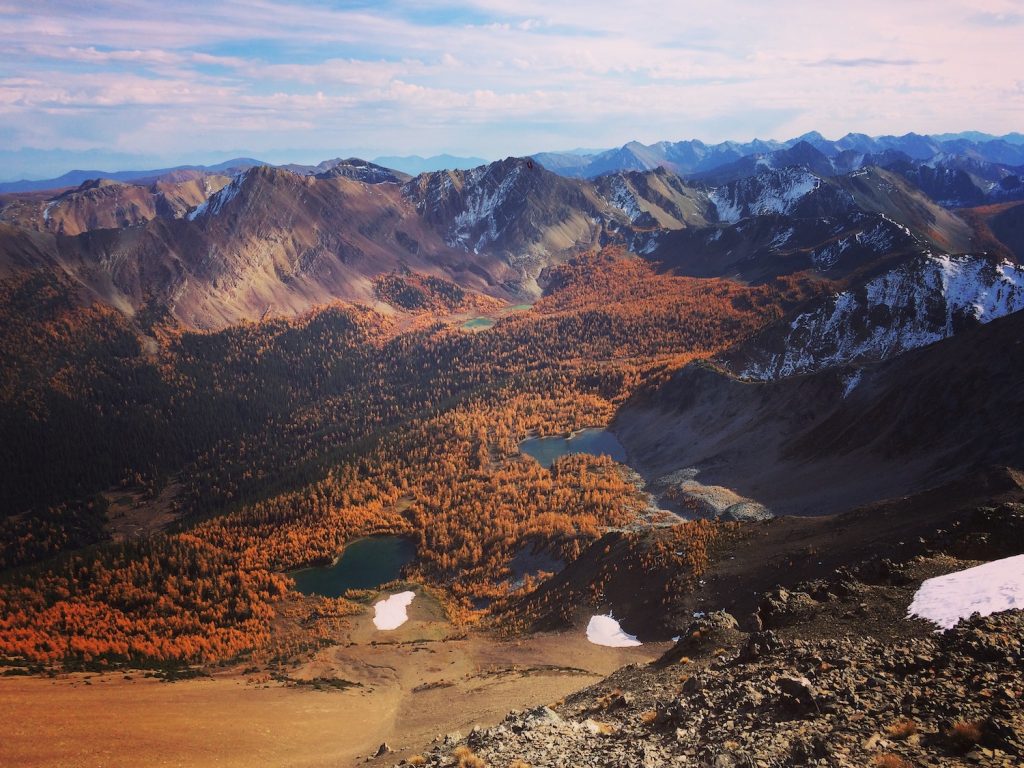
Toby Creek Adventures at the base of Panorama Mountain Resort offers ATV guided tours to the area’s spectacular golden alpine larch trees. A 4WD ATV or Side-By-Side is the easiest way to travel to the high alpine (2,438 m. / 8,000 ft. elevation) to see these larch trees.
This natural spectacle only lasts for a few weeks each fall season, so book early. Starting mid-to-late September, experience a one-of-a-kind adventure with our Larches in Paradise tour, a seasonal twist on their Paradise Mine tour.
